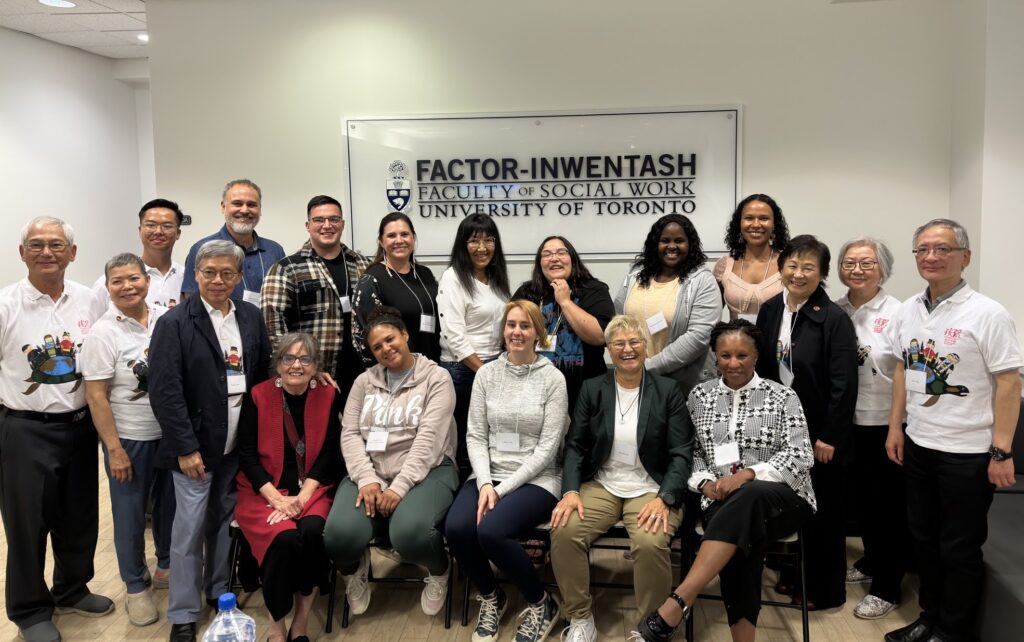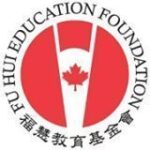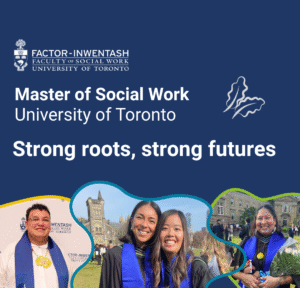Global healing rooted in Indigenous values
Categories: Indigenous Trauma and Resiliency field of study, Programs + Teaching, StudentsSpring 2025 graduate Agnes Nambalirwa plans to apply the knowledge and skills she developed in FIFSW’s Indigenous Trauma and Resiliency field of study to support her community in Uganda
 In her native Uganda, Agnes Ndukwu Nambalirwa saw the traumatic effects that colonialism and conflict had on her people. While their strength inspired her, she always felt they needed better support. As a new graduate of the Master of Social Work – Indigenous Trauma and Resiliency (ITR) program at the University of Toronto, Nambalirwa is now equipped to help provide the healing she’s long believed her community deserves.
In her native Uganda, Agnes Ndukwu Nambalirwa saw the traumatic effects that colonialism and conflict had on her people. While their strength inspired her, she always felt they needed better support. As a new graduate of the Master of Social Work – Indigenous Trauma and Resiliency (ITR) program at the University of Toronto, Nambalirwa is now equipped to help provide the healing she’s long believed her community deserves.
“I looked at many social work programs around the world, but when I found the ITR program, I was like, ‘This is it,’” she says. “I was looking for something different, because I don’t think the trauma in my country has been dealt with. A lot of people are suffering with their mental health, but mental health conversations are often silenced, so it’s not something that’s taken care of, like here in Canada. But I believe there’s a beginning to everything, and I wanted to be part of it.”
Nambalirwa has always felt driven to help people who are struggling. While earning a bachelor’s degree in Business Administration, an MBA in Hospitality Management, and an MIS in Global Security, she took on various volunteer positions, including a stint with the American Red Cross, Army Community Services, and Korean orphanages in South Korea, where she volunteered alongside many social workers. While there, she realized she wanted to pursue her passion for service through a career shift.
“I needed to do this for my people,” says Nambalirwa, who runs a business in Uganda with her husband. The Factor-Inwentash Faculty of Social Work accepted her into the ITR program in 2018 and she was due to start in 2019, but international student visa complications and COVID-19 lockdowns vastly complicated and extended the timeline of her degree.
“The faculty never gave up on me and always encouraged me,” she says, noting that she kept in touch with classmates and professors from afar, and read and researched independently on trauma and social work. “It helped me not give up.”
Nambalirwa completed some courses online during the pandemic, then eventually secured a visa to come to Toronto in 2023. “The ITR program is not an ordinary social work program,” says Nambalirwa. “It’s not just about getting the knowledge we need to support others. It also recognizes that for us to be good supporters and helpers, we need to heal our own traumas as Indigenous peoples or otherwise.” Nambalirwa is a member of the Bantu-speaking Baganda, the largest ethnic group in Uganda.
“I’ve gone through a lot of trauma due to my culture and beliefs, and experienced social, political and economic injustices,” says Nambalirwa. “In the ITR program, we call the personal trauma and wellness work ‘cleaning out our basements.’ It grounds you, takes care of you, gives you the skills and knowledge, and sets you up to help others.”
Like Nambalirwa, ITR students come to the faculty from all over the world. “It was wonderful to learn with my classmates, because sometimes we sit in our own basements and feel like it’s just us,” she says. “It was profound for me to hear from others about their struggles and their beautiful cultures.”

ITR students, including Nambalirwa (back row, 5th from the right), with instructors, Dean Charmaine Williams, and representatives from the Fu Hui Education Foundation.
The two-year ITR field of study, founded in 2016 as the first of its kind in North America, requires students to attend five one-week intensive courses in person where students engage in academic and experiential learning alongside personal wellness evaluations and activities. The remainder of the program can be completed in students’ own communities.
Although the field of study is rooted in North American Indigenous values, including belonging, cooperation and respect, and inspired by indigenous traditions from around the world, it prepares students to work with a wide range of populations affected by historical and generational trauma in a culturally relevant way. “We learned to counsel people holistically, incorporating their beliefs and ideas,” says Nambalirwa.
For her practicum as a mental health counsellor on Manitoulin Island, the majority of people that Nambalirwa worked with were Indigenous. Through this experience, she found that Indigenous people in Canada share similar struggles with indigenous people in Uganda. “We also have some of the same strengths, such as how we respect the environment and try to protect it,” she says.
Nambalirwa says she fell in love with the island’s diverse communities and natural beauty, and managed to secure not just a second field placement there, but a contract job as a project coordinator at an addiction recovery centre.
Nambalirwa’s plan is to get more social work experience in Canada and earn her professional license before bringing her new skills home. “I want to get equipped so I can take everything I’ve learned to help my people,” she says. “I want to open a counselling facility for people with trauma and addictions. That’s what I have within me. That’s my dream.”
By Megan Easton
 The first of its kind in North America, the Factor-Inwentash Faculty’s Master of Social Work program in Indigenous Trauma and Resiliency is dedicated to preparing advanced social work professionals to work with individuals, families and communities who have been affected by historical and generational trauma. FIFSW is deeply grateful to the Fu Hui Education Foundation for its generous support to help sustain this important program and its students.
The first of its kind in North America, the Factor-Inwentash Faculty’s Master of Social Work program in Indigenous Trauma and Resiliency is dedicated to preparing advanced social work professionals to work with individuals, families and communities who have been affected by historical and generational trauma. FIFSW is deeply grateful to the Fu Hui Education Foundation for its generous support to help sustain this important program and its students.
 Are you an Indigenous social worker, social service worker or professional interested in pursuing your MSW?
Are you an Indigenous social worker, social service worker or professional interested in pursuing your MSW?
Join us online for an engaging information session on July 15, 12 to 1pm EST to learn about our Master of Social Work programs, financial support & more!
Register for the information session via eventbrite.
Related:
- Shade of Our Sisters is a powerful reminder of our responsibility to support MMIWG2S+ families and combat systemic oppression
- The power of cultural connections: Inspired by her own experience, Fall 2024 graduate Folashade Kortee is now helping Indigenous students at U of T strengthen their wellbeing and sense of belonging by connecting with their culture
- New staff strengthen support for Indigenous students and programs at FIFSW
- Coming full circle: Sabrina Williams is inspired by the power of intergenerational understanding to bring change and healing
- Q&A with ITR graduate Elma Arthurson
- Charlotte Sampson-Elliott inspired by a goal to build trauma-informed schools in her community
- Terrance Lafromboise and Hyungu Kang reflect on the healing path they forged through FIFSW’s Indigenous Trauma and Resiliency field of study
- Q & A: Rebecca Schuss (MSW 2020) shares how her experience studying Indigenous Trauma and Resiliency at the Factor-Inwentash Faculty led to law school
- Alumna Julie Blair proves the power of U of T’s Indigenous Trauma and Resiliency program